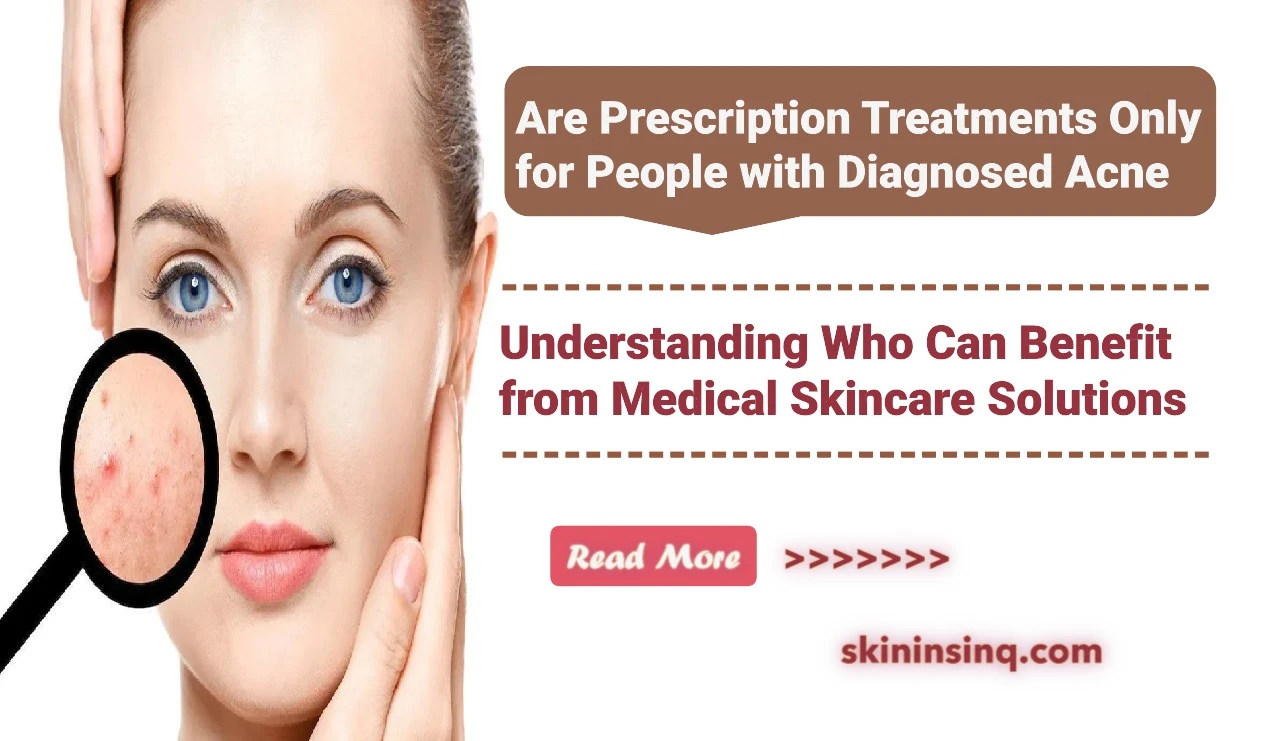Are Prescription Treatments Only for People with Diagnosed Acne? Understanding Who Can Benefit from Medical Skincare Solutions
Are Prescription Treatments Only for People with Diagnosed Acne? Understanding Who Can Benefit from Medical Skincare Solutions
When people think of prescription skincare treatments, they often associate them solely with severe or diagnosed acne. While it’s true that medical-grade acne treatments are frequently prescribed to individuals with a clinical diagnosis, prescription options aren’t limited to those with chronic acne. In fact, a variety of skin concerns—including occasional breakouts, persistent blackheads, and inflammatory flare-ups—can also benefit from professional prescription treatments under the right guidance.
What Qualifies as a Prescription Acne Treatment?
Prescription acne treatments include topical or oral medications that require a healthcare provider’s authorization. Common examples include:
-
Topical retinoids (e.g., tretinoin, adapalene in higher strengths)
-
Antibiotics (topical or oral, such as clindamycin or doxycycline)
-
Oral contraceptives (used in hormonal acne treatment for women)
-
Isotretinoin (commonly known as Accutane for severe cystic acne)
These treatments are typically stronger and more targeted than over-the-counter options, offering effective solutions for various types of acne—whether mild, moderate, or severe.
Are They Only for Diagnosed Acne?
No. Prescription treatments are not strictly limited to individuals with a formal acne diagnosis. Here's how others may benefit:
1. Occasional or Persistent Breakouts:
Some people experience sporadic but stubborn pimples that don’t respond well to OTC products. A dermatologist may prescribe a mild topical retinoid or antibiotic to prevent these breakouts from progressing into more serious acne.
2. Preventative Care:
In cases where someone has a family history of severe acne or is starting to show early signs, prescription treatments may be used proactively to prevent the condition from worsening.
3. Post-Acne Concerns:
Prescription retinoids are often prescribed not just for active acne, but for fading post-inflammatory hyperpigmentation (dark marks left after breakouts) and refining skin texture.
4. Hormonal Fluctuations:
Teenagers or adults experiencing hormonal shifts—due to puberty, menstrual cycles, or conditions like PCOS—may benefit from prescription treatments to manage flare-ups even without a chronic acne diagnosis.
5. Misdiagnosed or Underlying Conditions:
Sometimes, skin issues that resemble acne may be caused by rosacea, folliculitis, or fungal infections. Prescription treatments help target the correct root cause once identified by a professional.
Why a Dermatologist’s Guidance Matters
Using prescription treatments without proper supervision can lead to skin irritation, resistance (especially with antibiotics), or unwanted side effects. A dermatologist evaluates your skin type, the severity of your condition, and your medical history to tailor the treatment plan safely and effectively.
Conclusion
Prescription treatments are not reserved only for those with diagnosed acne—they're powerful tools that can benefit a wider range of people with various skin concerns. If over-the-counter products aren’t providing the results you need or you're experiencing recurring issues, consulting a dermatologist could open the door to more effective, long-term solutions for healthier skin.

Related Blog
Can People with Dry Skin Also Have Acne? Understanding Breakouts Beyond Oily Skin Types
Aug 2, 2025 by Admin
General Acne
What Causes Oily Skin and Can It Be Managed Naturally? Exploring Root Causes and Gentle Solutions
Aug 2, 2025 by Admin
General
Does Popping Pimples Always Make Acne Worse? The Risks and Realities of Squeezing Breakouts
Aug 2, 2025 by Admin
General Acne
Do Oily Foods Make Pimples Worse? Uncovering the Truth Behind Diet and Breakouts
Aug 2, 2025 by Admin
General Acne